Cover Gallery: Let’s Go to the Movies
With the Academy Awards around the corner, we found some Post covers that make us want to grab a bucket of popcorn and watch a great flick!
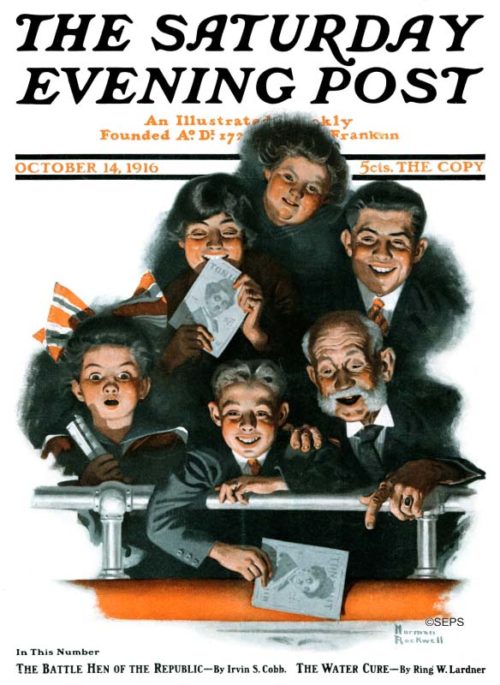
By Norman Rockwell
October 14, 1916
In 1916, Charlie Chaplin’s star was still rising rapidly. By 1916, at age 26, he was making $670,000 a year and in charge of his own studio. He had already appeared in 50 films, including his most well-known, The Tramp.
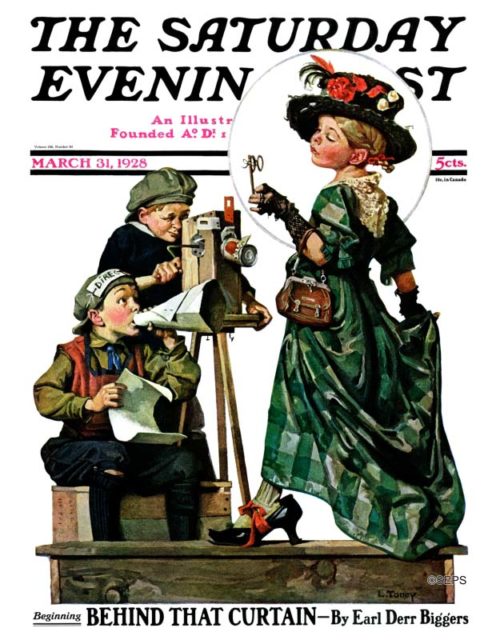
By Lawrence Toney
March 31, 1928
The movie bug has bitten these kids early – looks like we have a budding director, cinematographer, and actress in the making!
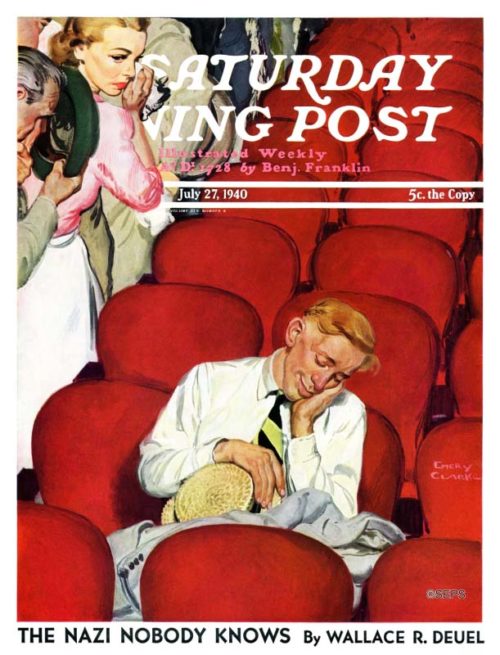
By Emery Clarke
July 27, 1940
He must have been watching Andy Warhol’s Empire.
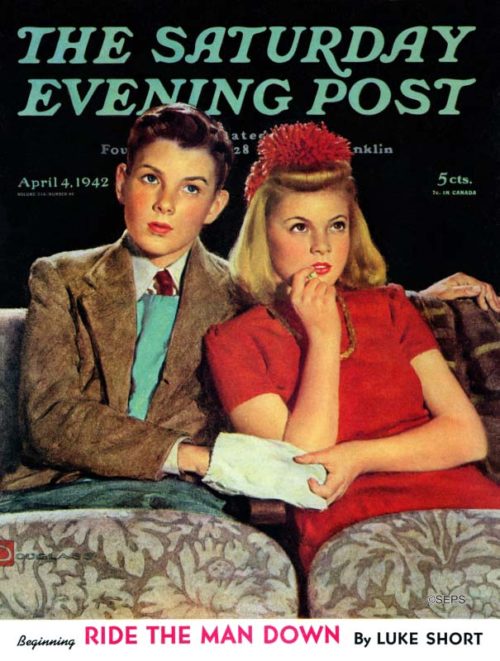
By Douglas Crockwell
April 4, 1942
Bags of popcorn have gotten larger and hair bows have gotten smaller since 1942.
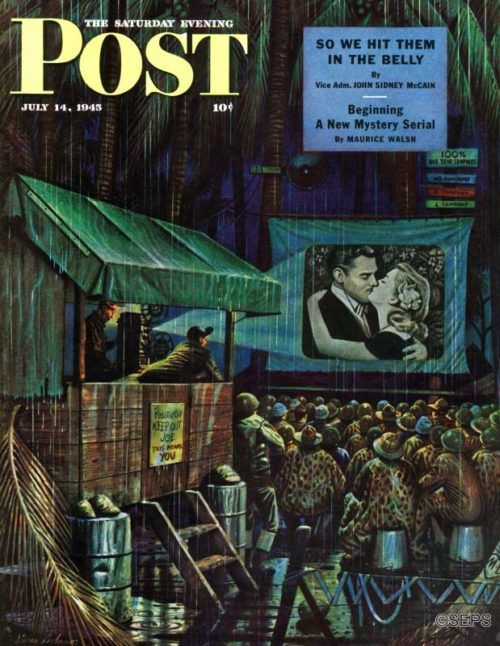
Stevan Dohanos
July 14, 1945
You can’t go wrong with a good romance, even in less-than-ideal circumstances.
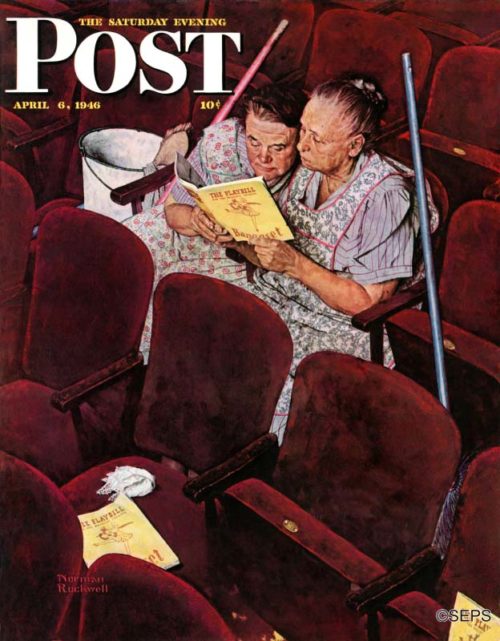
By Norman Rockwell
April 6, 1946
These cleaning ladies are at the theater, not the movies, but we couldn’t resist including this classic Rockwell illustration.
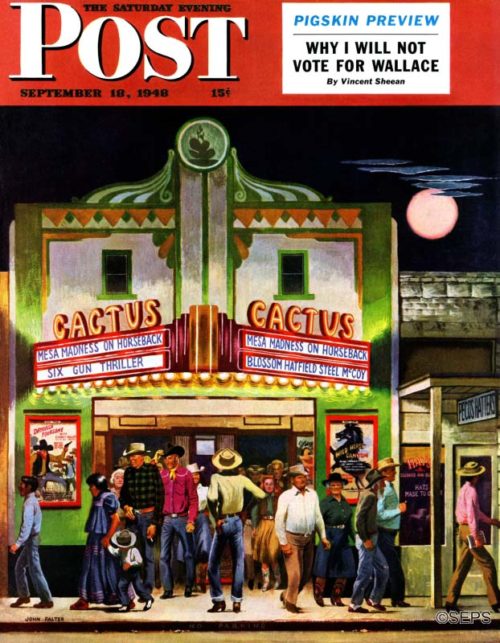
John Falter
September 18, 1948
Illustrator John Falter grew up in the Midwest and started his career in New York, and most of his paintings depict these locations. This southwestern movie theater is an outlier, but reflected Falter’s later interest in western art.
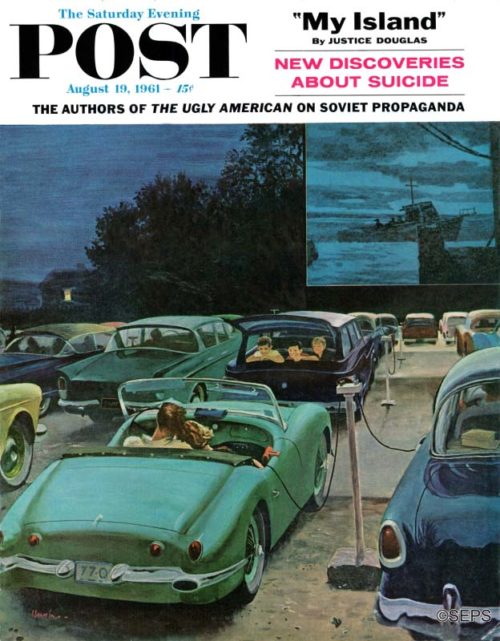
By George Hughes
August 19, 1961
Riding in the “way-back” of your parents’ station wagon has gone the way of the dodo, but you can still find a few drive-in movie theaters here and there.
Classic Covers: The Theater
Charlie Chaplin Fans
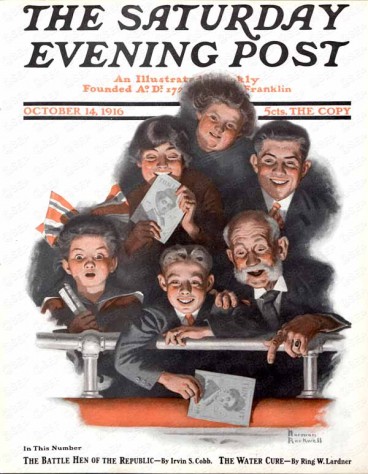
Charlie Chaplin Fans
by Norman Rockwell
from October 14, 1916
Norman Rockwell was thrilled when he sold his first Post cover in 1916. “I used to sit in the studio with a copy of the Post laid across my knees,” Rockwell wrote in his autobiography. “’Must be 2 million people look at that cover,’ I’d say to myself. ‘At least. Probably more. Two million subscribers and then their wives, sons, daughters, aunts, uncles, friends. Wow! All looking at my cover.’” Needless to say, his fantasy of himself as a famous illustrator came true in spades.
This cover was one of his finest of that era, with an already masterful use of light—in this case reflected from the flickering screen onto the delighted faces of the theatergoers.
Old Folks at the Theater
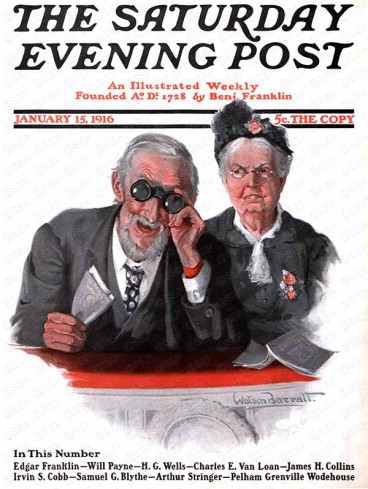
Old Folks at the Theater
by Watson Barratt
from January 15, 1916
Pops clearly thinks Vaudeville is a hoot in this 1916 cover, but the more puritanical Missus does not approve. This is the only Post cover by Watson Barratt, about whom little is known today.
It is interesting to note an article inside this issue on World War I by H.G. Wells and one of many stories the Post published by the delightful P.G. Wodehouse.
Uncle Tom’s Cabin
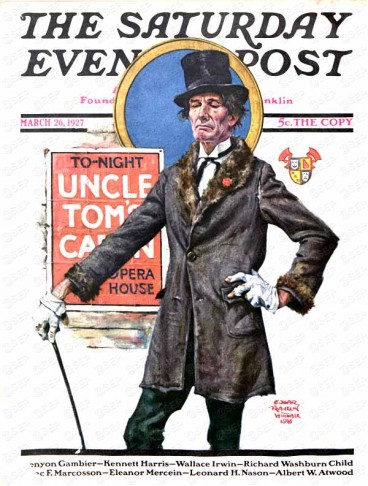
Uncle Tom’s Cabin
by Edgar Franklin Wittmack
from March 26, 1927
Next to the Bible, Harriett Beecher Stowe’s novel, Uncle Tom’s Cabin, was the best-selling book of the 19th century. Yes, it has long been decried for racial stereotypes, but Stowe made it clear that no Christian could condone slavery. This 1927 cover by Edgar Franklin Wittmack shows an Opera House featuring the play. We’re guessing the actor shown here was portraying the cruel slave owner whose name has become synonymous with greed and evil: Simon Legree. Artist Wittmack illustrated more than 20 Post covers.
Summer Stock
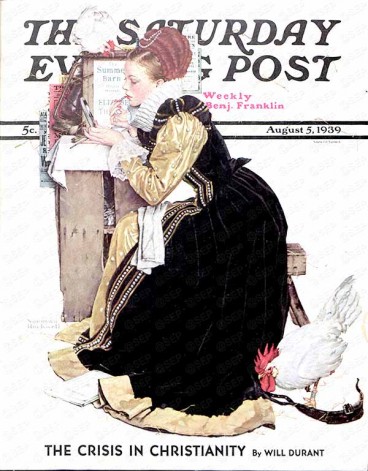
Summer Stock
by Norman Rockwell
from August 5, 1939
Norman Rockwell was full of surprises. On occasion, a Rockwell cover just doesn’t look “like a Rockwell.” Case in point is this 1939 illustration of a very pretty actress in full Elizabethan regalia. Contrast her elaborate costume with her stark “dressing room”—backstage at a barn, with an old crate serving as a dressing table. Her assistants? A couple of helpful barnyard residents.
Man Asleep in Theater
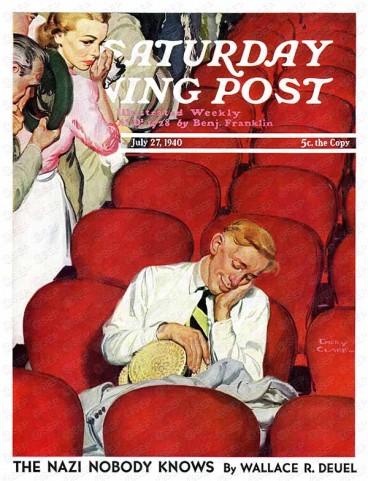
Man Asleep in Theater
by Emery Clarke
from July 27, 1940
We laughed, we cried … we fell asleep. While the lovely lady with the hanky and the gentleman behind her appear to wipe away a tear, one moviegoer was moved … to nap. This 1940 cover was by Emery Clarke, who, while not a well-known artist, did half a dozen other Post covers.
Cousin Reginald is the Hero
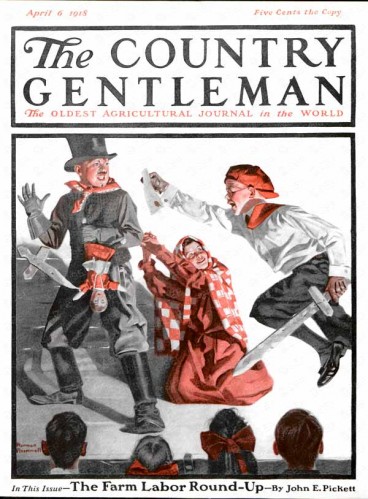
Cousin Reginald is the Hero
by Norman Rockwell
from April 6, 1918
In 1917-1919, Norman Rockwell painted a series of covers for Country Gentleman magazine, a sister publication to the Post. The characters he created were a group of often mischievous, if not downright ornery, country boys and their visiting city cousin, Reginald. Cousin Reginald was a geeky kid who was always bested by the kids’ rural activities: fishing, swimming, etc.
Rockwell must have finally tired of the tribulations he put Reginald through, for in this 1918 cover, cousin Reginald gets to be the hero. The cousins are in a rather clichéd school play, where the villain is throwing the poor maiden out for nonpayment of rent, when good old Reggie comes through with the deed to the house just in time! For more on these delightful covers see: “Norman Rockwell’s Cousin Reginald.”
Reprints of covers are available at Art.com.